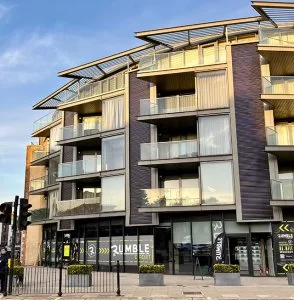Can you rent a property to then rent out on AirBnB?

Contact
Table of Contents
What is Airbnb rent-to-rent?
Airbnb rent-to-rent is where an individual rents a property from a landlord, typically under a standard tenancy agreement, with the intention of subletting it on a short-term basis via platforms like Airbnb. This model can generate a profit if the individual renting the property earns more from the short-term rentals than they pay to the landlord in rent and other costs.
What happened in Nemcova v Fairfield Rents Ltd?
In the case of Nemcova v Fairfield Rents Ltd the Upper Tribunal considered whether a covenant in a residential lease prohibiting use other than private residence had been breached.
The tenant owned a long lease in a purpose-built block of flats. The tenant’s lease contained a covenant “Not to use the Demised Premises or permit them to be used for any legal or immoral purpose other than as a private residence.”.
The tenant had advertised the availability of her flat for short-term lettings online and had granted a series of such lettings. The freeholder sought a determination from the Tribunal that the tenant had breached the covenants in the lease.
The tenant argued and gave evidence as follows:
- She paid the council tax and utility bills for the building;
- The flat was her main residence
- She let the flat for only 90 days a year and on about seven occasions in the past twelve months. The lettings were almost always to business visitors.
- She currently stayed at the flat three or four days a week, staying with her boyfriend on the nights she was away.
The First Tier Tribunal found in the landlord’s favour holding that the tenant had breached the covenant in her lease. They held that as the people occupying the flat on a short tem letting would not be occupying the flat as their home, it followed that the tenant was using the flat for a purpose other than use as a private residence.
The tenant appealed to the Upper Tribunal who found the landlord’s favour and dismissed the tenant’s appeal. The Upper Tribunal stated that there was necessary for a connection between the occupier and the residence such that the occupier would think of it as their residence. The current occupier must use the flat as their private residence for the covenant to be observed.
The Upper Tribunal further stated that what was material was the duration of the occupier’s occupation. There had to be a degree of permanence for a property to be used as the occupier’s private residence, and this would require the occupier residing in the property for more than a weekend or a few nights in the week. Where a person occupies a property for a number of days and then leaves, it could not be said that the occupier was using the property as their private residence during the period of occupation.
In summary, the Upper Tribunal said that each case had to be assessed on their particular facts and the construction of the particular covenant. The Tribunal said that it was not possible to give a definitive answer to the question whether a tenant with a long residential lease that contained a covenant not to use their demised premises other than as a private residence would breach their lease if they advertised the availability of their flat on AirBnB and granted a series of such lettings.
- Related blog post: The Dangers of Rent-to-Rent
Importance of Specialist Legal Advice
This case serves as a useful reminder of the importance for leaseholders to seek specialist legal advice before offering their property on a short-term let. The consequences could be very significant. Leaseholders should also be mindful that such short term lets may breach the conditions of any mortgage agreement for a mortgage secured against their property.
To speak with Shilpa about a property issue you are facing, call us on 020 7485 8811 or fill in an online form.
Share this article
Contact us about Rent to Rent AirBnB
Call us 020 7485 8811
Email us Send us an email and we’ll get back to you
Related InsightsVIEW ALL
- 27.5.2024
The Leasehold and Freehold Reform Bill 2024
The Leasehold and Freehold Reform bill was one of the last pieces of legislation to make it through Parliament on...
Read more - 8.11.2023
Leasehold update: A new Leasehold and Freehold Bill...
Yesterday, 7th November 2023, in the King’s Speech we heard the following: “My Ministers will bring forward a bill to...
Read more - 11.5.2023
Lease Extension Negligence
What is Lease Extension Negligence? Solicitors Negligence when a Tenant claims a new lease of a flat under the Leasehold...
Read more - 30.1.2021
Making Alterations to a Leasehold Property
What is a Leasehold Property? There are two main types of property in England and Wales, freehold and leasehold property....
Read more - 30.1.2018
Understanding Your Lease
The security of shelter is a basic human requirement and is even more important if we have a family or...
Read more






